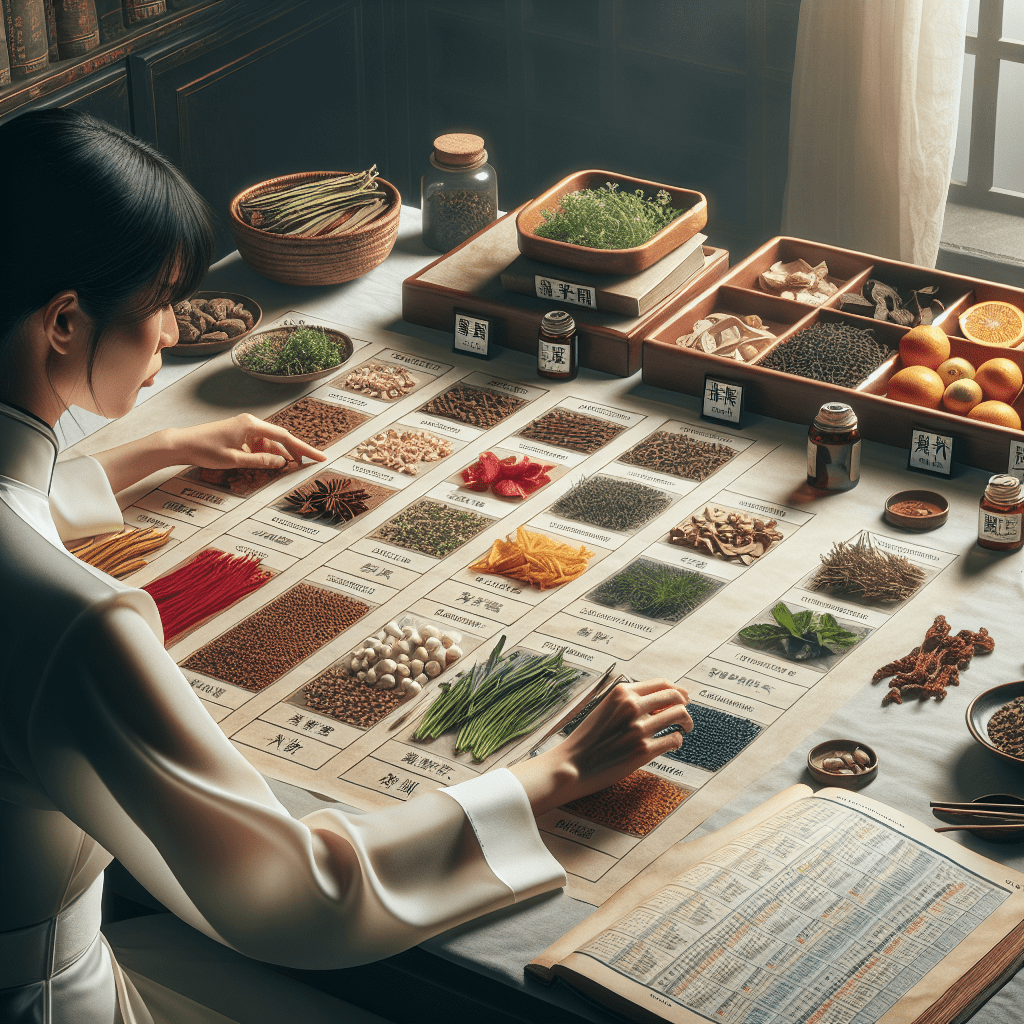Have you ever wondered why some people seem to radiate health and energy, while others struggle despite following the latest diet trends? The secret might be hiding in wisdom that’s thousands of years old. A holistic diet isn’t just about what you eat—it’s a complete approach to nourishing your body, mind, and spirit that draws from ancient Eastern philosophies.
Unlike conventional Western approaches that often focus solely on calories and nutrients, a holistic diet embraces the whole person. It recognizes that true health comes from harmony within ourselves and with our environment. This ancient wisdom sees food not just as fuel, but as medicine that can heal, balance, and energize us.
In Eastern traditions like Traditional Chinese Medicine, Ayurveda, and macrobiotic philosophies, eating isn’t just about satisfying hunger—it’s a sacred practice that connects us to nature’s rhythms and our inner wisdom. These time-tested approaches offer profound insights that modern medicine is only beginning to understand.
Let’s explore seven ancient Eastern secrets for vibrant health that your doctor probably hasn’t mentioned—principles that might just transform your relationship with food and your overall wellbeing.
1. Know Your Unique Body Type
“When diet is wrong, medicine is of no use; when diet is correct, medicine is of no need.” — Ancient Ayurvedic Proverb
One of the most powerful insights from Eastern healing traditions is that we’re all different—and our diets should reflect this individuality. What works perfectly for your friend might leave you feeling tired or bloated.
Traditional Eastern medicine systems recognize distinct constitutional types, each with specific dietary needs. In Ayurveda, for example, people are categorized as Vata, Pitta, or Kapha types (or combinations), each requiring different foods to maintain balance. Similarly, Traditional Chinese Medicine identifies patterns based on elements like heat, cold, dampness, and dryness in your body.
“Eastern healing traditions have always understood that personalized nutrition is essential for optimal health,” says John Immel, founder of Joyful Belly. “When you eat according to your constitutional type, you’re not fighting against your nature—you’re supporting it.”
This is where modern technology meets ancient wisdom. EASTCHI AI from HerbalsZen analyzes your unique constitutional characteristics using Five Element Theory to create truly personalized nutrition plans. Rather than following generic health advice, you receive guidance tailored specifically to your body’s needs.
For instance, someone with a “hot” constitution might benefit from cooling foods like cucumber and watermelon, while someone with a “cold” constitution might thrive on warming spices like ginger and cinnamon. This individualized approach recognizes that what is a holistic diet for one person may look quite different for another.
2. Balance Your Energy Through Food
Eastern philosophies view food as more than just macronutrients—proteins, carbs, and fats. While these are important, a holistic diet emphasizes the energetic qualities of food and how they create balance in your body.
In Traditional Chinese Medicine, this concept is expressed through yin and yang—complementary energies that must be in harmony for good health. Yin foods are cooling, moistening, and calming, while yang foods are warming, drying, and energizing.
The macrobiotic approach, which has roots in Zen Buddhism, similarly focuses on balancing these energetic qualities. It emphasizes whole grains, seasonal vegetables, beans, seaweeds, and minimal animal products to maintain this equilibrium.
What does this mean for your dinner plate? A truly balanced holistic diet might include:
- Complex carbohydrates from whole grains like brown rice or millet (50-60%)
- A variety of colorful vegetables, both cooked and raw (25-30%)
- Plant or animal proteins from beans, tofu, eggs, or occasional fish (10-15%)
- Healthy fats from nuts, seeds, and plant oils (5-10%)
This balance provides sustained energy without the crashes that come from highly processed foods, while also supporting your body’s natural healing processes.
3. Honor the Mind-Body Connection
Eastern healing traditions have always recognized what Western science is now confirming: your thoughts and emotions profoundly affect your physical health—and vice versa. What you eat influences not just your body but your mind and emotional state.
“In Traditional Chinese Medicine, emotions and physical health are intimately connected,” explains Dr. Ming Chen, a TCM practitioner. “Each organ system has associated emotions. For instance, the liver is connected to anger, while the heart relates to joy.”
This mind-body connection means that certain foods can help balance emotional states. Feeling anxious? Warming root vegetables might help ground you. Experiencing irritability? Cooling leafy greens could help soothe an overactive liver system according to TCM principles.
A holistic diet includes mindful eating practices that strengthen this mind-body awareness. Taking time to prepare food with positive intention, eating without distractions, and expressing gratitude for your meals are all part of this approach.
“When we eat in a stressed state, even the healthiest foods can’t be properly digested,” notes Dr. Chen. “A calm mind creates the conditions for optimal nourishment.”
EASTCHI AI incorporates this wisdom by recommending not just what to eat, but how to eat and which foods might help balance your specific emotional tendencies—creating true harmony between body and mind.
4. Embrace Food as Medicine
Perhaps the most revolutionary aspect of a holistic diet is viewing food as your primary medicine. As Hippocrates said centuries ago, “Let food be thy medicine and medicine be thy food”—a principle that Eastern healing traditions have always embraced.
In Traditional Chinese Medicine, foods have specific medicinal properties. For example:
- Ginger warms the digestive system and expels cold
- Mushrooms strengthen immunity and provide vital life energy
- Leafy greens cleanse the liver and purify the blood
- Walnuts nourish the brain and kidneys
“According to TCM philosophies, if we consume seasonal foods that are similar in nature to the external environment, we remain in harmony with the environment,” explains nutritionist Sarah Lin. This explains why cooling foods like watermelon are perfect in summer, while warming stews feel right in winter.
A holistic diet doesn’t just prevent disease—it actively creates health by supplying your body with exactly what it needs to thrive in each season and life stage.
5. Prioritize Plant Power
While Eastern dietary traditions vary widely, they share one common thread: an emphasis on plant foods as the foundation of health. From the vegetable-rich Japanese traditional diet to the diverse plant foods in traditional Chinese cuisine, plants provide vital energy and healing compounds.
A true holistic diet celebrates the incredible diversity of plant foods:
- Vibrant vegetables in all colors of the rainbow
- Whole, unprocessed grains like rice, millet, and barley
- Beans, legumes, and soy foods for plant-based protein
- Nuts, seeds, and plant oils for healthy fats
- Medicinal herbs and spices that enhance both flavor and healing
These plant foods contain thousands of phytonutrients that modern science is just beginning to understand—compounds that reduce inflammation, support cellular health, and may even influence gene expression.
“Eastern diets traditionally use animal products more as a garnish than a main course,” notes nutritionist Maya Wong. “This plant-centered approach naturally provides more fiber, antioxidants, and protective compounds while minimizing the health risks associated with high animal product consumption.”
EASTCHI AI incorporates this plant wisdom into its recommendations, suggesting seasonal vegetables and healing herbs specifically suited to your constitution and current health needs.
6. Integrate Movement and Mindfulness
A holistic diet extends beyond your plate to encompass your entire lifestyle. In Eastern philosophy, food, movement, and mindfulness practices are inseparable parts of health.
Traditional Chinese Medicine, for example, recommends gentle movement like tai chi or qigong to keep energy pathways open, allowing nutrients to be properly distributed throughout the body. These mind-body exercises also promote better digestion and absorption of nutrients.
Similarly, mindfulness practices like meditation can transform your relationship with food. When you eat mindfully—truly tasting each bite and tuning in to your body’s hunger and fullness signals—you naturally make better choices and extract more nourishment from your meals.
HerbalsZen’s philosophy embraces this integrated approach, recognizing that harmonizing mind, body, and spirit requires attention to all aspects of life, not just diet alone. This comprehensive vision of wellness aligns perfectly with traditional Eastern approaches.
As one ancient Chinese proverb states: “He who takes medicine and neglects diet wastes the skill of the physician.” Similarly, focusing on diet while ignoring movement and mental well-being creates an imbalance that prevents true health.
7. Choose Sustainable, Natural Foods
The final secret of a holistic diet is its fundamental connection to nature and sustainability. Eastern philosophies view humans as part of nature, not separate from it, and this extends to our food choices.
Traditional Eastern diets feature:
- Locally grown, seasonal foods at the peak of freshness and nutritional value
- Minimal processing, preserving the life force or “qi” of foods
- Sustainable growing practices that maintain soil health
- Nose-to-tail eating that honors the entire animal when meat is consumed
“Many spiritual traditions emphasize a connection to nature and the environment,” explains environmental nutritionist Dr. Leila Park. “When we eat foods that are grown in harmony with natural cycles, we bring that harmony into our bodies.”
This approach not only benefits our health but supports the planet’s wellbeing. By choosing seasonal, local, and sustainably grown foods, we reduce our environmental footprint while maximizing nutrition.
The ancient Taoist concept of “wu wei” or non-interference applies beautifully here—the idea that the least manipulated foods, grown with minimal disruption to natural processes, contain the most vital energy for health.
Embracing Holistic Eating in Modern Life
Key Takeaway: A holistic diet combines ancient Eastern wisdom with modern nutritional science, offering a personalized approach to health that honors your unique constitution, balances your energy, and nourishes your entire being.
So what is a holistic diet in practice? It’s a deeply personal journey of discovering which foods nourish your unique body, mind, and spirit. It’s connecting with ancient wisdom while remaining open to modern nutritional insights. Above all, it’s about creating harmony—within yourself and with the world around you.
Unlike trendy diets that come and go, these Eastern principles have sustained human health for thousands of years. They offer a profound alternative to the confusion of constantly changing nutrition headlines.
As you explore what a holistic diet means for you, remember that small changes can lead to significant transformations. Perhaps begin by eating more mindfully, incorporating seasonal vegetables, or learning which foods best support your constitutional type.
The wisdom of Eastern healing traditions reminds us that vibrant health isn’t complicated—it’s about returning to the natural patterns that humans thrived on for millennia before modern processing and disconnection from food sources.
By embracing these seven ancient secrets—individualized nutrition, energetic balance, the mind-body connection, food as medicine, plant power, integrated wellness, and sustainability—you unlock a path to vibrant health that nurtures not just your body, but your entire being.



